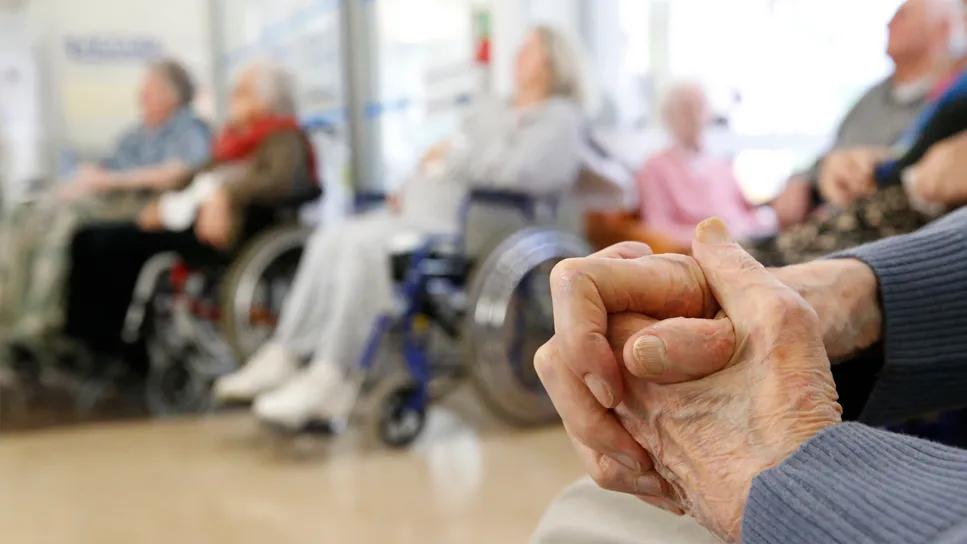Patients First through relationship-centered care

As patients age, the complexities of healthcare often become more challenging for them. Recognizing this issue, the staff of Cleveland Clinic’s Center for Geriatric Medicine is taking a closer look at the wants and needs of the older adult patient population by engaging a volunteer group of “healthcare partners.”
Advertisement
Cleveland Clinic is a non-profit academic medical center. Advertising on our site helps support our mission. We do not endorse non-Cleveland Clinic products or services. Policy
After months of recruiting and preparation, the center hosted the first meeting of its new Healthcare Partner Council in September.
“We reached out to a wide group of patients and community members invested in our center who want to help us take things to the next level of care,” says Center Director Ardeshir Hashmi, MD. “We currently have seven patients and three patient family members who have become official volunteer members of our team, and we are looking forward to this closer interaction with the community.”
The council’s immediate goal is to increase awareness of the breadth of services provided by the Center for Geriatric Medicine. The Council’s second immediate goal is to evaluate current care flows and protocols to determine where improvements can be made.
“Improving care for older adult patients of Cleveland Clinic and in the community at large is our charge,” says geriatrician Amanda Lathia, MD, who is co-leading the council with Dr. Hashmi. “Council members are making suggestions for improvements, and they have committed to participating in different projects and activities along with our staff to help us make enhancements.”
The partners will co-lead initiatives with the physicians by attending project meetings and working on assigned tasks. One of the first issues discussed in the September council meeting centered on improving external communication between patients and their doctors.
“Our older patients and their caregivers tell us they sometimes have difficulty navigating our phone system to leave messages with their physicians,” says Dr. Lathia. “We are working on practical solutions to make it easier for patients to reach their doctors after a visit.” The healthcare partners will work with the patient call center to find a way to make the phone system more user friendly for older adult patients who see this as an important part of their healthcare.
Advertisement
To launch the new council, the center worked with Cleveland Clinic’s Office of Patient Experience (OPE), which oversees the Healthcare Partner Council Program throughout the health system. The office helps with developing strategy, onboarding of partners and facilitating ongoing operation of the councils.
“It’s about building relationships with patients and the community and designing care the way patients want it,” explains Program Manager Amy Szabo, BSN, BS Ed, RN. “Each member of the council becomes embedded in the area they serve and represents a demographic of people. They provide an active voice for their demographic.” The program also features an online project tracker to guide councils through improvement projects with robust reporting of status and metrics to keep Cleveland Clinic leadership informed of all enterprise projects involving healthcare partners.
Szabo says the first meeting of the Center for Geriatric Medicine’s new council went particularly well, with members staying until 9 p.m., well past its scheduled finish time of 7 p.m. “Our new partners had so much they wanted to discuss,” she says.
Dr. Lathia says, “The most exciting part of the meeting was seeing that the entire group sees great value in geriatric medicine. The group is enthusiastic about trying to improve the care that is delivered at the center and also about improving the visibility of the center across the health system and in the Cleveland community.”
Julie Rish, PhD, Director of Best Practices in the OPE, says Cleveland Clinic has long engaged patients in its work through Patient and Family Advisory Councils, which have now been replaced by these new councils.
Advertisement
“In 2017, we invited patients and caregivers to help us reimagine how we could more meaningfully partner with the patients we serve. The result is our co-designed Healthcare Partner Councils,” says Dr. Rish. “Now, our community healthcare partners are embedded with our healthcare teams, and they are active participants in organizational change. This supports our vision of putting Patients First through relationship-centered care.”
Advertisement
Advertisement

Researchers explore the mental and physical benefits of social prescribing

Multidisciplinary approach helps address clinical and psychosocial challenges in geriatric care

Effective screening, advanced treatments can help preserve quality of life

Study suggests inconsistencies in the emergency department evaluation of geriatric patients

Auditory hallucinations lead to unusual diagnosis

How providers can help prevent and address this under-reported form of abuse

How providers can help older adults protect their assets and personal agency

Recognizing the subtle but destructive signs of psychological abuse in geriatric patients